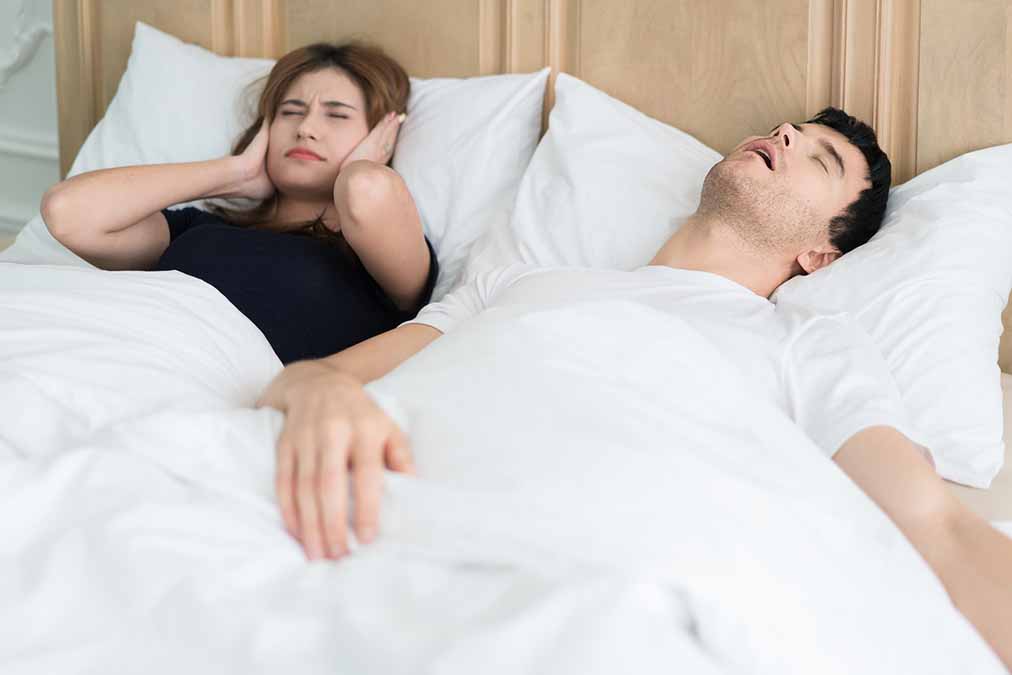 If you snore loudly, you probably have hidden (or diagnosed) sleep apnea.
If you snore loudly, you probably have hidden (or diagnosed) sleep apnea.
People with sleep apnea tend to be more depressed and anxious than non-sufferers, especially if they also happen to have cardiovascular disease.
That connection made a team of researchers curious, so they decided to find out whether sleep apnea treatment in the form of continuous positive airway pressure (CPAP) could help reduce the symptoms of depression and anxiety.
As explained in the Journal EClinicalMedicine, the researchers originally found this question interesting because of two facts:
1. Heart disease makes you more likely to be depressed. In fact, research shows that people who have had a stroke or heart attack are up to three times more likely to develop clinical depression which, in turn, increases their risk of future heart attacks and strokes.
2. Up to 50 percent of people with cardiovascular disease also have sleep apnea.
This made treating the sleep apnea look like a ‘quick fix’ for cardiovascular disease patients, because this would help their depressive symptoms, which in turn would improve their heart health.
They got medical information for 2,687 people who had enrolled in the Sleep Apnea Cardiovascular Endpoints (SAVE) trial. These were all sleep apnea patients who also had cardiovascular disease.
Of these, they selected 2,410 subjects for their study who had moderate or severe sleep apnea together with their cardiovascular disease. They were followed for 3.7 years.
Some of the subjects had undergone CPAP treatment but most had not.
The CPAP group had reduced depression symptoms, with the largest benefit seen in the group that started off with the most severe depression. Results were seen by the sixth month, and they were maintained until the end of the study.
CPAP didn’t help with anxiety scores, though.
After completing their own study, the researchers reviewed other literature, finding 20 trials on the same subject with 4,255 participants altogether.
These trials backed their conclusion that CPAP was an effective treatment for depression in people with sleep apnea.

 Overcoming IBD
Overcoming IBD Multiple Sclerosis
Multiple Sclerosis Banishing Bronchitis
Banishing Bronchitis Gum Disease Gone
Gum Disease Gone Overcoming Onychomycosis
Overcoming Onychomycosis Neuropathy No More
Neuropathy No More The Prostate Protocol
The Prostate Protocol Brain Booster
Brain Booster
 Ironbound
Ironbound
 Solution for Shingles
Solution for Shingles
 The Bone Density Solution
The Bone Density Solution
 The Ultimate Healing Protocol
The Ultimate Healing Protocol
 The Parkinson's Protocol
The Parkinson's Protocol
 The Chronic Kidney Disease Solution
The Chronic Kidney Disease Solution
 Overthrowing Anxiety
Overthrowing Anxiety The Fatty Liver Solution
The Fatty Liver Solution The Hypothyroidism Solution
The Hypothyroidism Solution
 The End of Gout
The End of Gout The Blood Pressure Program
The Blood Pressure Program
 The Oxigized Cholesterol Strategy
The Oxigized Cholesterol Strategy
 Stop Snoring And Sleep Apnea Program
Stop Snoring And Sleep Apnea Program
 The Arthritis Strategy
The Arthritis Strategy The Vertigo & Dizziness Program
The Vertigo & Dizziness Program The 3-Step Diabetes Strategy
The 3-Step Diabetes Strategy Hemorrhoids Healing Protocol
Hemorrhoids Healing Protocol The Erectile Dysfunction Master
The Erectile Dysfunction Master Weight Loss Breeze
Weight Loss Breeze The IBS Program
The IBS Program The Insomnia Program
The Insomnia Program The Migraine and Headache Program
The Migraine and Headache Program The Neck Pain Solution
The Neck Pain Solution The Menopause Solution
The Menopause Solution The Ejaculation Master
The Ejaculation Master The TMJ Solution
The TMJ Solution The Acid Reflux Solution
The Acid Reflux Solution The Fibromyalgia Solution
The Fibromyalgia Solution The Psoriasis Strategy
The Psoriasis Strategy